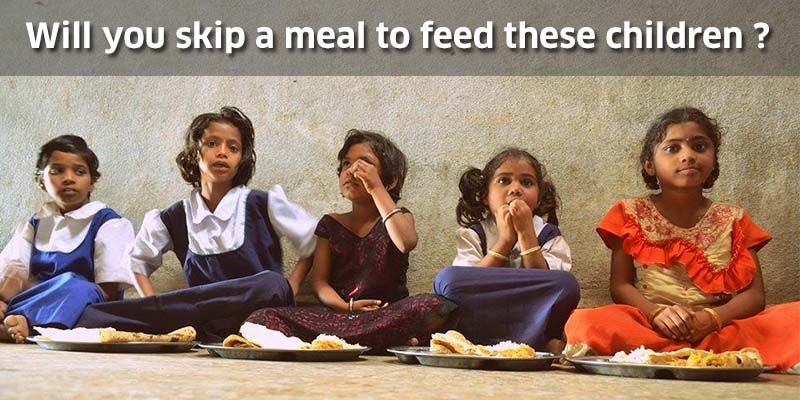Can you make this students' movement a force for change?
You and I know that hundreds of children in India still go to sleep hungry. We know that one in every three malnourished children in the world lives right here in India. And this is no dystopia. We understand that it would take a lot more than just tall poll promises and poverty eradication programmes by the authorities to change this reality. Yet, this is a fact most of us have come to accept passively. When a bunch of students from Tata Institute of Social Sciences, Tuljapur campus, came face to face with this side of India, they decided to do something about it.

About a year ago, Arpan Roy, Parnika Madar, Mukund Jha, Rahul Sathe, Tanay Mohan, Nalini Chaubey and Pallavi Kashyap – from 2012 BASS batch of TISS – set out to survey poverty and destitution in Tuljapur. To their surprise, they found nobody homeless on the streets or begging for food or money. That led them to two orphanages/child care centres of the village – Tuljabhavani School and Tuljai Balgrah. There were over 150 children, studying in nursery grade to 10th. Many of them were orphans, some were abandoned and some had parents who could feed them little. Every day, these children ate dry rotis with chilli powder mixed in water. “In our college campus, we were fed sumptuously. Eggs, lentils, vegetables, rice … we had unlimited food three times a day. When we realised that less than a kilometre away from us, there were these children who, perhaps, never had a good meal, we decided to do what we could to help,” Arpan told Social Story.These students started an initiative called Skip A Meal (SAM) https://www.facebook.com/pages/Skip-A-Meal/175440732625002. Initially, their modus operandi was to skip

one meal every week and feed the children of the two orphanages. Their mission broadened as they found that the children needed more than just good food. “Most of these children suffer from serious family problems. This affects their psyche. Even in the orphanage, situation is not any different. Teachers are known to beat up the children. Healthcare facilities are so dismal that they do not even have a thermometer or basic medicines,” Arpan said.Soon more students from TISS joined the initiative and presently, there are about 230 of them in it. “The children eagerly await for the TISS bus to arrive, not so much for the food, but more for the company that we are fortunately able to provide them.”
Over the year, the focus of SAM broadened to building a strong academic base for these children, particularly in English and Mathematics. Students from the 2013 BASS batch joined the initiative too and the volunteer base grew.
They formed three committees with clear goals:
• Education Committee
• Activities Committee
• Food Committee
The education committee makes sure that each child is taught individually. This is important as “there are some children in the lower classes who know much more than their peers. Meanwhile, some in upper classes are struggling with the basics. One of the goals of teaching them is also to inspire and motivate them to do better in life,” Arpan said. With this in mind, they gave the children a tour of the TISS campus. “We brought them to our campus, especially library and computer centre, so that they get inspired to pursue higher education.”

In order to build a strong bond with the children, the same volunteers make regular visits for at least three months in a stretch. The activities committee organizes educational games, art and crafts projects and other informational activities for the children. The food committee is in charge of packing adequate amount of food from the TISS kitchen and distributing it in the orphanages. Some volunteers also counsel the children.Now, these students want their initiative to spread. Despite the evident social impact of what they have been doing, hardly anyone outside their campus know of SAM yet. “Won’t it be cool if one college could adopt one orphanage and support it?” they ask. They would like to rope in tele-health providers and career counselors to help these children.
“Even if we visit these children just once a week, the smiles on their faces are enough to let us know that something is being done right,” Arpan said.
Do you want to lend a hand to these students? You can reach out to them in the comments below.










![[Funding alert] Insurtech startup Vital raises $3M in pre-Series A round led by BLinC Invest](https://images.yourstory.com/cs/2/b87effd06a6611e9ad333f8a4777438f/Image7pk7-1623852700230.jpg)
